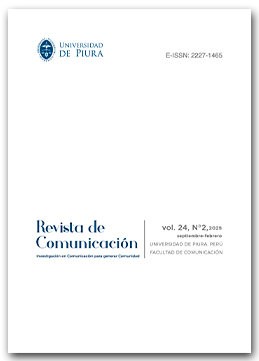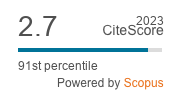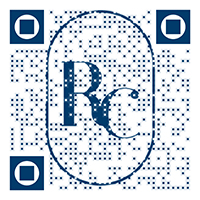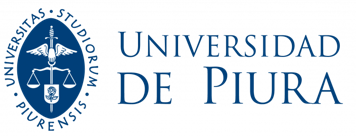Fact-checking y cooperación transnacional: Análisis de la respuesta europea a la desinformación bélica en el contexto de las Elecciones Europeas de 2024
DOI:
https://doi.org/10.26441/RC24.2-2025-3858Palabras clave:
desinformación, guerra, Rusia-Ucrania, Israel-Palestina, verificación, Elections24CheckResumen
Propósito. Ante el incremento de la desinformación vinculada a los actuales conflictos bélicos y su potencial impacto en las elecciones al Parlamento Europeo de 2024, la European Fact-Checking Standards Network (EFCSN) impulsó la iniciativa Elections24Check, orientada a unir esfuerzos de verificación a escala continental. Esta investigación tiene como objetivo estudiar la contribución de los países y fact-checkers de la Unión Europea al proyecto, así como analizar las características de los desórdenes informativos bélicos. Metodología. Para alcanzar este objetivo, se aplicó un análisis de contenido a 714 verificaciones realizadas por Elections24Check durante 2024, todas relacionadas con las guerras de Rusia-Ucrania e Israel-Palestina. Resultados y conclusiones. Los resultados evidencian el protagonismo de las agencias españolas, así como un mayor interés por parte del periodismo de verificación europeo en el conflicto fronterizo que sacude a Ucrania. Aunque puede concluirse que la iniciativa es valiosa dentro del fact-checking colaborativo, aún adolece de coordinación interna y de una diversificación de estrategias que vayan más allá del mero desmentido. Aporte original. Esta investigación se posiciona como la primera en medir comparativamente la forma en que la se relacionan la desinformación bélica —específicamente la que se origina a propósito de los dos conflictos que mayor conmoción están causando en las instituciones comunitarias— y el periodo electoral de 2024. Con ello, contribuye a la discusión académica resaltando la necesidad de fortalecer la coordinación de los verificadores de hecho europeos, además de evidenciar sus principales prácticas y tendencias.
Descargas
Referencias
Alonso-Muñoz, L., Tirado García, A. y Casero-Ripollés, A. (2024). The effects of disinformation among citizens of in Spain, UK and Germany: digital platforms, topics, consequences and influence of sociodemographic factors. Online Information Review, 48(7), 1412-1430. https://doi.org/10.1108/OIR-03-2024-0138 DOI: https://doi.org/10.1108/OIR-03-2024-0138
Arendt, H. (25 de febrero de 1967). Truth and Politics. The New Yorker, 49-88.
Bahar, H. M. (2020). Social media and disinformation in war propaganda: how Afghan government and the Taliban use Twitter. Media Asia, 47(1–2), 34–46. https://doi.org/10.1080/01296612.2020.1822634 DOI: https://doi.org/10.1080/01296612.2020.1822634
Baines, D. y Elliott, R. J. R. (2020). Defining misinformation, disinformation and malinformation: An urgent need for clarity during the Covid-19 infodemic. Discussion papers, 20(6). https://repec.cal.bham.ac.uk/pdf/20-06.pdf
Baines, P., O'Shaughnessy, N. y Snow, N. (2019). The SAGE Handbook of Propaganda. SAGE. DOI: https://doi.org/10.4135/9781526477170
Baptista, J. P., y Gradim, A. (2020). Online disinformation on Facebook: the spread of fake news during the Portuguese 2019 election. Journal of Contemporary European Studies, 30(2), 297–312. https://doi.org/10.1080/14782804.2020.1843415 DOI: https://doi.org/10.1080/14782804.2020.1843415
Baptista, J. P., Rivas-de-Roca, R., Gradim, A., y Loureiro, M. (2023). The Disinformation Reaction to the Russia–Ukraine War: An Analysis through the Lens of Iberian Fact- Checking. KOME, 11(2), 27–48. https://doi.org/10.17646/KOME.of.2 DOI: https://doi.org/10.17646/KOME.of.2
Barreñada, I., Abu-Tarbush, J., Álvarez-Ossorio, I. y Sanahuja, J. A. (2018). Entre España y Palestina. Revisión crítica de unas relaciones. Bellaterra.
Capoccia, F. (23 de mayo de 2024). Questo non è un bambino palestinese che si finge ferito a causa di un bombardamento israeliano. Facta News. https://www.facta.news/antibufale/pallywood-bambino-palestinese
Casero-Ripollés, A., Tuñón, J. y Bouza-García, L. (2023). The European approach to online disinformation: geopolitical and regulatory dissonance. Humanities and Social Sciences Communications, 10. https://doi.org/10.1057/s41599-023-02179-8 DOI: https://doi.org/10.1057/s41599-023-02179-8
Casero-Ripollés, A., Alonso-Muñoz, L. y Moret-Soler, D. (2025). Spreading False Content in Political Campaigns: Disinformation in the 2024 European Parliament Elections. Media and Communication, 13. https://doi.org/10.17645/mac.9525 DOI: https://doi.org/10.17645/mac.9525
Cigar, N. (2023). The Russian Military’s Biological Warfare Disinformation Campaign and the Russo-Ukrainian War. The Journal of Slavic Military Studies, 36(4), 361–409. https://doi.org/10.1080/13518046.2023.2305511 DOI: https://doi.org/10.1080/13518046.2023.2305511
Dafonte-Gómez, A., Míguez-González, M. I. y Martínez-Rolán, X. (2022). Los fact-checkers iberoamericanos frente a la COVID-19. Análisis de actividad en Facebook. Observatorio (OBS*), 16(1), 160-182. https://doi.org/10.15847/obsOBS16120221823 DOI: https://doi.org/10.15847/obsOBS16120221823
Domingues, I. G., Dias, L. M. y Silva, J. S. (2024). The relationship between successful disinformation operations and armed conflict: case study of Russia in the 21st century. Revista de Ciências Miliares, 12(1), 225-256.
Domínguez de Olazábal, I. (2023). The European Union’s Policies in Historic Palestine: Two-Step Securitisation, Differentiation and Its Discontents. Middle East Critique, 32(1), 5-25. https://doi.org/10.1080/19436149.2023.2169979 DOI: https://doi.org/10.1080/19436149.2023.2169979
Doroshenko, L. y Lukito J. (2021). Trollfare: Russia’s Disinformation Campaign During Military Conflict in Ukraine. International Journal of Communication, 15, 4662–4689.
Dowse, A., y Bachmann, S. D. (2022). Information warfare: methods to counter disinformation. Defense & Security Analysis, 38(4), 453–469. https://doi.org/10.1080/14751798.2022.2117285 DOI: https://doi.org/10.1080/14751798.2022.2117285
Elections24Check (enero de 2024). EE24 Check: Data gathering, methodology and process Guidebook. EFCSN.
Epachtitis, T. S. (2 de junio de 2024). Rosikí propagánda: Stochopoiónntas tin ithikí ypóstasi ton gynaikón tis Oukranías. Greece Fact Check. https://www.factchecker.gr/2024/06/02/disinformation-against-the-women-of-ukraine/
Fallis, D. (2014). A functional analysis of disinformation. iConference 2014 proceedings, 621-627. https://doi.org/10.9776/14278 DOI: https://doi.org/10.9776/14278
Fletcher, R., Cornia, A., Graves, L. y Nielsen, R. K. (2018). Measuring the reach of “fake news” and online disinformation in Europe. Australasian Policing, 10(2), 25-33.
Floridi, L. (2011). The philosophy of information. Oxford University Press. DOI: https://doi.org/10.1093/acprof:oso/9780199232383.001.0001
García-Marín, D. (2020). Infodemia global. Desórdenes informativos, narrativas fake y fact-checking en la crisis de la Covid-19. Profesional de la información, 29(4), e290411. https://doi.org/10.3145/epi.2020.jul.11 DOI: https://doi.org/10.3145/epi.2020.jul.11
Gilboa, E. (2023). US-Israel relations at 75. Israel Affairs, 29(3), 473–491. https://doi.org/10.1080/13537121.2023.2206210 DOI: https://doi.org/10.1080/13537121.2023.2206210
Graves, L. (2018). Boundaries not drawn. Mapping the institutional roots of the global fact-checking movement. Journalism studies, 19(5), 613-631. https://doi.org/10.1080/1461670x.2016.1196602 DOI: https://doi.org/10.1080/1461670X.2016.1196602
Hameleers, M., Powell, T. E., Van Der Meer, T. G. L. A. y Bos, L. (2020). A Picture Paints a Thousand Lies? The Effects and Mechanisms of Multimodal Disinformation and Rebuttals Disseminated via Social Media. Political Communication, 37(2), 281–301. https://doi.org/10.1080/10584609.2019.1674979 DOI: https://doi.org/10.1080/10584609.2019.1674979
Hameleers, M. (2025). The visual nature of information warfare: the construction of partisan claims on truth and evidence in the context of wars in Ukraine and Israel/Palestine. Journal of Communication, 75(2), 90–100. https://doi.org/10.1093/joc/jqae045 DOI: https://doi.org/10.1093/joc/jqae045
Horowitz, M. A. (2019). Disinformation as Warfare in the Digital Age: Dimensions, Dilemmas, and Solutions. Journal of Vicentian Social Action, 4 (2), 6-21.
Humprecht, E. (2018). Where ‘fake news’ flourishes: a comparison across four Western democracies. Information, Communication & Society, 22(13), 1973–1988. https://doi.org/10.1080/1369118X.2018.1474241 DOI: https://doi.org/10.1080/1369118X.2018.1474241
Humprecht, E. (2019). How do they debunk ‘fake news’? A cross-national comparison of transparency in fact checks. Digital journalism, 8(3), 310-327. https://doi.org/10.1080/21670811.2019.1691031 DOI: https://doi.org/10.1080/21670811.2019.1691031
Hunter, L. Y., Albert, C. D., Rutland, J., Topping, K. y Hennigan, C. (2024). Artificial intelligence and information warfare in major power states: how the US, China, and Russia are using artificial intelligence in their information warfare and influence operations. Defense & Security Analysis, 40(2), 235–269. https://doi.org/10.1080/14751798.2024.2321736 DOI: https://doi.org/10.1080/14751798.2024.2321736
Ireton, C. y Posetti, J. (2018). Journalism, “fake news” & disinformation: Handbook for journalism education and training. Unesco.
Jones-Jang, S. M., Mortensen, T. y Liu, J. (2021). Does media literacy help identification of fake news? Information literacy helps, but other literacies don’t. American Behavioral Scientist, 65(2), 371–388. https://doi.org/10.1177/0002764219869406 DOI: https://doi.org/10.1177/0002764219869406
Katz, E. (2020). Liar’s war: Protecting civilians from disinformation during armed conflict. International Review of the Red Cross, 102(914), 659–682. https://doi.org/10.1017/S1816383121000473 DOI: https://doi.org/10.1017/S1816383121000473
Krippendorff, K. (1990). Metodología del análisis de contenido. Teoría y práctica. Paidós.
Lahmann, H. (2020). Protecting the global information space in times of armed conflict. International Review of the Red Cross, 102(915), 1227–1248. https://doi.org/10.1017/S1816383121000400 DOI: https://doi.org/10.1017/S1816383121000400
Landriault, M., LaFortune, G. y Poelzer, G. A. (2024). Arctic disinformation on X (Twitter) – an empirical investigation. Polar Geography, 47, 244-257. https://doi.org/10.1080/1088937X.2024.2372270 DOI: https://doi.org/10.1080/1088937X.2024.2372270
Lewandowsky, S., Stritzke, W. G. K., Freund, A. M., Oberauer, K. y Krueger, J. I. (2013). Misinformation, disinformation, and violent conflict: From Iraq and the “War on Terror” to future threats to peace. American Psychologist, 68(7), 487–501. https://doi.org/10.1037/a0034515 DOI: https://doi.org/10.1037/a0034515
López-Pan, F. y Rodríguez-Rodríguez, J. M. (2020). El Fact Checking en España. Plataformas, prácticas y rasgos distintivos. Estudios sobre el Mensaje Periodístico, 26(3), 1045-1065. https://doi.org/10.5209/esmp.65246 DOI: https://doi.org/10.5209/esmp.65246
Magallón-Rosa, R., Fernández-Castrillo, C. y Garriga, M. (2023). Fact-checking in war: Types of hoaxes and trends from a year of disinformation in the Russo-Ukrainian war. Profesional De La información, 32(5), e320520. https://doi.org/10.3145/epi.2023.sep.20 DOI: https://doi.org/10.3145/epi.2023.sep.20
Maldito Bulo. (17 de junio de 2024). ¿Jennifer Aniston y Leo Messi pidiendo el fin de la ayuda a Ucrania? Cuidado con los contenidos en redes sociales de supuestas citas de famosos. Maldita.es. https://maldita.es/malditobulo/20240617/supuestas-citas-famosos-ayuda-ucrania/
Morejón-Llamas, N. (2023). Características y ejes discursivos de la desinformación y el proceso de fact-checking sobre las vacunas COVID-19 en Latinoamérica. Revista Española de Comunicación en Salud, Suplemento 1, 47-61. https://doi.org/10.20318/recs.2023.7005 DOI: https://doi.org/10.20318/recs.2023.7005
Morejón-Llamas N. (2023). Evolución de la actividad de los chequeadores iberoamericanos durante la pandemia sanitaria (2020-2022). En J.C. Figuereo Benítez (Coord.) La comunicación en un contexto convulso (pp. 549-567). Dykinson. https://hdl.handle.net/11441/147814
Morejón-Llamas, N., & Cristòfol, F. J. (2023). Monkeypox, Disinformation, and Fact-Checking: A Review of Ten Iberoamerican Countries in the Context of Public Health Emergency. Information, 14(7), 390. https://doi.org/10.3390/info14070390 DOI: https://doi.org/10.3390/info14070390
Morejón-Llamas, N., Martín-Ramallal, P. y Micaletto-Belda, J.P. (2022). Twitter content curation as an antidote to hybrid warfare during Russia’s invasion of Ukraine. Profesional de la información, 31(3), e310308. https://doi.org/10.3145/epi.2022.may.08 DOI: https://doi.org/10.3145/epi.2022.may.08
Muñoz-Rocha, C. (2016). Metodología de la investigación. Oxford University Press.
Noain-Sánchez, A. (2020). Collaborative Journalism vs. Disinformation: An Approach to Fact-Checking Projects in Mexico, Argentina, Colombia, Brazil, and Spain. En D. Ramírez-Plascencia, B. Carvalho-Gurgel y A. Plaw (eds.) The Politics of Technology in Latin America (vol. 2) (pp. 194-211). Routledge. https://doi.org/10.4324/9780429343247 DOI: https://doi.org/10.4324/9780429343247-16
Oleinik, A. (2024). Telegram channels covering Russia’s invasion of Ukraine: a comparative analysis of large multilingual corpora. Journal of Computational Social Science, 7, 361–384. https://doi.org/10.1007/s42001-023-00240-9 DOI: https://doi.org/10.1007/s42001-023-00240-9
Palau-Sampio, D. (2018). Fact-checking and scrutiny of power: Supervision of public discourses in new media platforms from Latin America. Communication & Society, 31(3), 347-365. https://doi.org/10.15581/003.31.3.347-363 DOI: https://doi.org/10.15581/003.31.3.347-363
Park, S., Fisher, C., Flew, T. y Dulleck, U. (2020). Global Mistrust in News: The Impact of Social Media on Trust. International Journal on Media Management, 22(2), 83–96. https://doi.org/10.1080/14241277.2020.1799794 DOI: https://doi.org/10.1080/14241277.2020.1799794
Pascual, M. (28 de mayo de 2024). Ocho países de la UE ya reconocían el Estado de Palestina pese a que Feijóo dice que España e Irlanda “dejan de lado a los 25 restantes”. Newtral. https://www.newtral.es/paises-comunitarios-palestina-ue-factcheck/20240528/
Pérez-Curiel, C., Navarro-Moreno, J. A. y Domínguez-García, R. (2024). (coords.). Comunicación política e institucional en tiempos de conflicto. Desafíos de la unión europea y nuevas narrativas ante la desinformación. Dykinson.
Piazza, J. A. (2022). Fake news: the effects of social media disinformation on domestic terrorism. Dynamics of Asymmetric Conflict, 15(1), 55–77. https://doi.org/10.1080/17467586.2021.1895263 DOI: https://doi.org/10.1080/17467586.2021.1895263
Rodríguez-Fernández, L. (2019). Desinformación: retos profesionales para el sector de la comunicación. Profesional de la información, 28(3), e280306. https://doi.org/10.3145/epi.2019.may.06 DOI: https://doi.org/10.3145/epi.2019.may.06
Rodríguez-Perez, C., R. Sánchez del Val y J. Tuñón Navarro (2025). From Fact-Checking to Debunking: The Case of Elections24Check During the 2024 European Elections. Media and Communication, 13, 1-19. https://doi.org/10.17645/mac.9475 DOI: https://doi.org/10.17645/mac.9475
Romanova, T. y David, M. (2021). (eds.). The Routledge Handbook of EU-Russia Relations. Structures, Actors, Issues. Routledge. DOI: https://doi.org/10.4324/9781351006262
Stencel, M., Ryan, E. y Luther, J. (30 de mayo 2024). With half the planet going to the polls in 2024, fact-checking sputters. Duke Reporters’ Lab. https://reporterslab.org/with-half-the-planet-going-to-the-polls-in-2024-fact-checking-sputters/
The Reuters Institute for the Study of Journalism. (2016). Reuters Institute Digital News Report 2016. University of Oxford.
Thorbjørnsrud, K. y Figenschou, T. U. (2020). The Alarmed Citizen: Fear, Mistrust, and Alternative Media. Journalism Practice, 16(5), 1018–1035. https://doi.org/10.1080/17512786.2020.1825113 DOI: https://doi.org/10.1080/17512786.2020.1825113
Seib, P. (2021). Information at War. Journalism, Disinformation and Modern Warfare. Polity Press.
Ufarte-Ruiz, M.-J., Peralta-García, L. y Murcia-Verdú, F.-J. (2018). Fact checking: un nuevo desafío del periodismo. Profesional de la información, 27(4), 733–741. https://doi.org/10.3145/epi.2018.jul.02 DOI: https://doi.org/10.3145/epi.2018.jul.02
Van der Linden, S., Dixon, G., Clarke, C. y Cook, J. (2021). Inoculating against COVID-19 vaccine misinformation. eClinicalMedicine, 3, 100772. https://doi.org/10.1016/j.eclinm.2021.100772 DOI: https://doi.org/10.1016/j.eclinm.2021.100772
Van Herpen, M. H. (2014). Putin's Wars: The Rise of Russia's New Imperialism. Rowman & Littlefield.
Ventura-Salom, B. y Gelado Marcos, R. (2025). Watching the watchers: analysis of ideological biases in the contents analyzed by reference fact-checking agencies in Spain & Portugal. Comunicación y Sociedad. https://doi.org/10.32870/cys. v2025.8900 DOI: https://doi.org/10.32870/cys
Welch, D. y Foch, J. (2012). (eds.). Justifying war. Palgrave Macmillan. DOI: https://doi.org/10.1057/9780230393295
Younes, A. y Al-Taher, H. (2024). Erasing Palestine in Germany’s Educational System: The Racial Frontiers of Liberal Freedom. Middle East Critique, 33(3), 397–417. https://doi.org/10.1080/19436149.2024.2383444 DOI: https://doi.org/10.1080/19436149.2024.2383444
Zannier, L. (2017). Addressing Armed Conflicts in the Twenty-First Century: Challenges and Prospects for Multilateral Diplomacy. The Brown Journal of World Affairs, 24(1), 121–138.
Zecchinon, P. y Standaert, O. (2024). The War in Ukraine Through the Prism of Visual Disinformation and the Limits of Specialized Fact-Checking. A Case-Study at Le Monde. Digital Journalism, 13(1), 61–79. https://doi.org/10.1080/21670811.2024.2332609 DOI: https://doi.org/10.1080/21670811.2024.2332609
Publicado
Número
Sección
Licencia
Derechos de autor 2025 Revista de Comunicación

Esta obra está bajo una licencia internacional Creative Commons Atribución-NoComercial-SinDerivadas 4.0.
Revista de Comunicación conserva los derechos patrimoniales de las obras publicadas bajo una licencia Creative Commons 4.0 y permite al autor mantener los derechos patrimoniales sin restricciones.
Esta revista y sus artículos se publican bajo la licencia Creative Commons Atribución-NoComercial-SinDerivadas 4.0 Internacional (CC BY-NC-ND 4.0), por lo cual el usuario es libre de: compartir, copiar y redistribuir el material en cualquier medio o formato, siempre y cuando: dé crédito de manera adecuada, brinde un enlace a la licencia e indique si se han realizado cambios; no use nuestro contenido con propósitos comerciales; y/o remezcle o transforme el material.







 Portal de Revistas de la Universidad de Piura.
Portal de Revistas de la Universidad de Piura.